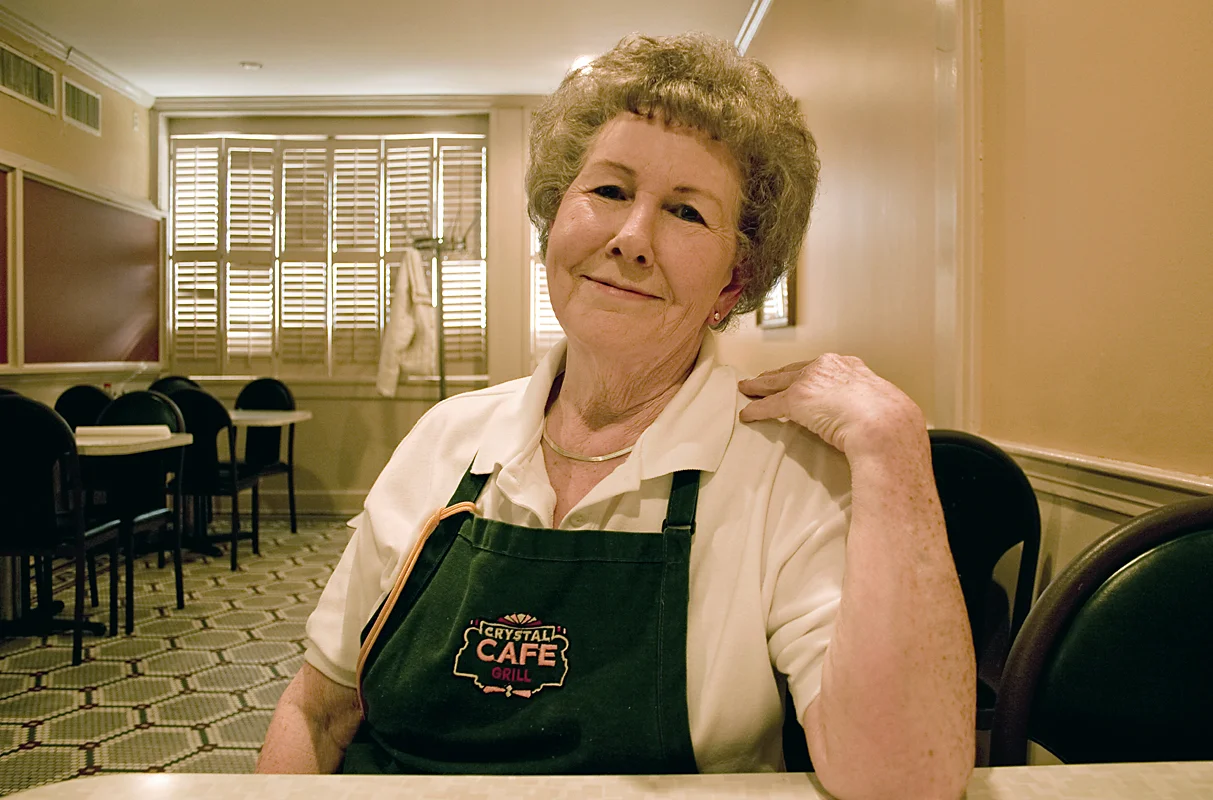For my book Counter Culture, I traveled over 26,000 miles and interviewed 59 waitresses working in large cities and rural towns with only one stoplight. As a black woman, I was unsure how I would be received in some of these out-of-the-way places, but practically every location I visited offered the highest standards of hospitality. Small Town USA opened up their homes, uncovered their histories, and shared their lives with me.
One of my most memorable interviews was with Rivers Coleman at the Crystal Grill in Greenwood, Mississippi. I set up the interview months before and while preparing for it I read that in the 1960s the Crystal Grill was a "key club" establishment. Having a "key" was code for being white. During the Civil Rights Act, the mayor of Greenwood was dead against desegregation and said, "Any business that voluntarily integrates in the Delta is ruined as far as local people are concerned. We are not going to help any businesses that want to integrate." The "Crystal Grill" during that time became the "Crystal Club" where whites had to pay a "membership fee." To get access patrons had to hand a membership card through the door. Lifetime memberships cost a dollar but white patrons admit they were never asked to produce a card and they never saw any black people in the restaurant.
After reading about the history of the Crystal Grill, I thought it would be a good idea to send newspaper articles about the project to Rivers with pictures of myself so she would know that I was black. I wanted to interview Rivers because she was still waiting tables in her 80s and had been a waitress for 55 years. When I spoke with her on the phone she was a little standoffish and reluctantly agreed to do the interview.
On the day of the interview, it was raining so the 95-mile drive from Jackson took even longer than it was supposed to. As we passed Kudzu draped fields on rural county roads, I started to mentally prepare for the interview. I was nervous about this one. Driving into the town of Greenwood, we saw blocks of boarded up buildings but at the end of the street on the corner was the Crystal Grill, open and ready for business. As we walked in, we were greeted by an openly gay black man, which immediately made me smile. He found Rivers and we sat down for the interview. She was a little nervous at first and but after a half an hour she relaxed and shared stories with me that I will always remember.
Rivers has a strong constitution and an incredible work ethic. She grew up poor, picking cotton as a child. The only time she took off from waitressing was when she had uterine cancer and she was back to work after only 3 weeks. She told a story about a white man slapping a black man in the restaurant for getting up to put sugar in his coffee. I imagine that was just one of many violent outbursts of racism that she witnessed growing up poor in rural Mississippi.
Obama had just won the Primary the night before our interview and Rivers said she was so happy that he had won. She paused for a moment with tears in her eyes and said, "We have come a long way." I teared up as well. I left Greenwood that day thinking that although I will always use my instincts on the road, listen to my gut and be as informed as possible, I will never prejudge a situation, especially when it comes race.
Listen to an audio clip of Rivers here.
Does anyone have stories about restaurant culture and race that they want to share?
For more stories you can buy the book, COUNTER CULTURE - $25 (includes shipping in the US)
email request to: candacy@taylormadeculture.com




